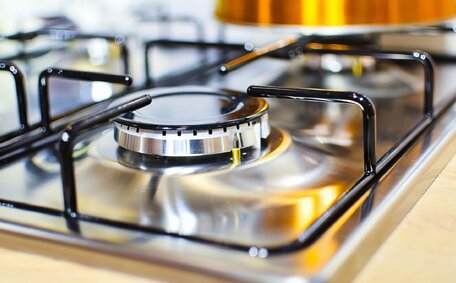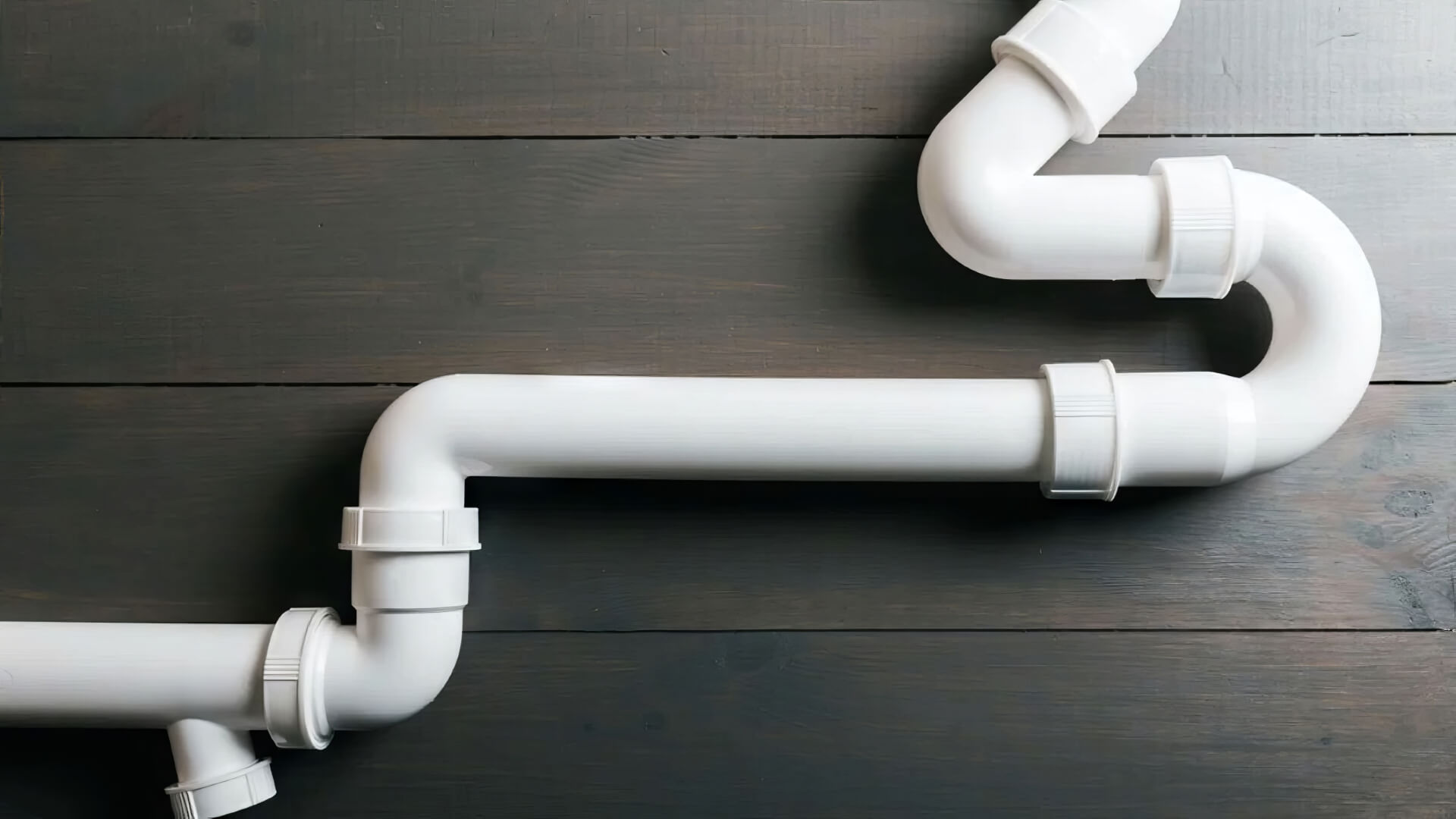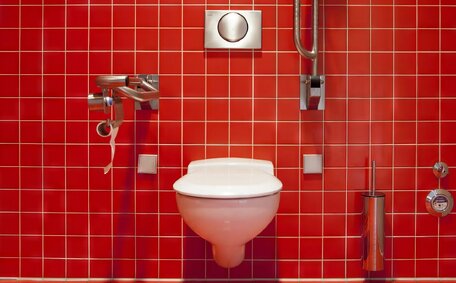Understanding the Risks of Gas Leaks
Recognising the dangers associated with gas leaks is critical for health and safety in residential and commercial settings. Being aware of potential risks is key to early detection and prevention.
Exposure to hazardous chemicals like methane or carbon monoxide from a gas leak puts people at risk of both immediate and long-term health effects.
According to Gas Safe Register, around 30 people die from carbon monoxide poisoning each year in the UK.
As leaks are not always detectable by smell, using multiple detection methods is crucial for safety. Annual safety inspections by a licensed plumber, carbon monoxide detectors, and vigilance for symptoms such as hissing sounds can all reduce the risk of disasters.
This article will examine the health and safety implications of gas leaks, detailing how to recognise symptoms of natural gas exposure. Key subjects discussed include recognising issues with your gas heater, acute vs chronic health risks, preventive strategies, and correct emergency responses to use natural gas safely.
Physical symptoms of gas exposure
The symptoms of a natural gas leak signify potential danger and must not be ignored. Recognising symptoms natural gas leak promptly can be life-saving, with common indicators including:
- Headaches - Swift-onset headaches and migraines can be symptoms of exposure to carbon monoxide due to natural gas inhalation.
- Dizziness - Feeling lightheaded or dizzy is a telltale sign that you may be inhaling dangerous gases.
- Nausea and vomiting - The chemicals in unburned natural gas can irritate the stomach lining, causing feelings of sickness.
- Fatigue - Carbon monoxide hinders oxygen from attaching to red blood cells, leading to fatigue.
- Shortness of breath - The lack of oxygen due to inefficient gas combustion and irritation of lung tissue leads to breathing difficulties.
- Vision problems - Carbon monoxide specifically affects eyesight, causing blurred or double vision.
Quick identification of gas leak symptoms is essential for rapid response. If sudden symptoms such as headaches or dizziness occur, seek medical help immediately as they may point to a gas leak. and remember to consider the wellbeing of your pet too. Timely action can mitigate the impacts of gas poisoning and prevent life-threatening complications.
While symptoms may subside when you remove the gas exposure source, do not overlook recurring signs due to their association with increased morbidity mortality rates. Your health wellbeing and safety should always be the top priority when addressing a gas leak in your surroundings.
It’s important to acknowledge that Continuous exposure to gas leaks, even at low levels, can have serious long-term effects. Get qualified assistance with finding and fixing the leak source.
Carbon monoxide poisoning
Carbon monoxide (CO) poisoning resulting from elevated levels in your home is a critical risk associated with gas leaks and demands serious attention. CO is more than a pernicious, odourless, colourless gas: it’s the result of incomplete combustion, which can precipitate a dangerous gas leak your house is vulnerable to.
Indoor CO accumulation from a leak or malfunctioning appliance can rapidly turn dangerous. High levels of carbon monoxide from a leak can lead to severe oxygen deprivation as it attaches to blood cell haemoglobin. A lack of oxygen can severely affect body tissues and vital organs, particularly the heart and brain.
Early symptoms of CO poisoning, indicative of a gas leak your home may be enduring, have detrimental implications for human health, with symptoms resembling the flu, including headaches, dizziness, and confusion. However the condition can worsen rapidly, eventually causing fainting or loss of consciousness as oxygen levels drop. In extreme instances, CO poisoning can progress to coma, seizures or even fatality.
Long-term exposure to carbon monoxide can seriously harm mental health. Surviving CO poisoning may lead to neurological issues like amnesia, parkinsonism, learning difficulties and personality changes. Depression, anxiety and post-traumatic stress are also common after being poisoned by carbon monoxide gas.
Prevention is key to keeping exposure low when dealing with CO leaks. Installing audible CO alarms, regular servicing of gas appliances, and avoiding indoor use of combustion appliances are measures that help mitigate the risk of carbon monoxide poisoning. If you suspect CO poisoning, get to fresh air promptly and call emergency services.
Immediate health risks from gas leaks
There are no minor concerns when gas leaks can expose people to hazardous air pollutants which can affect energy levels, compromising safety within the home. Gas leaks release harmful substances that can compromise safety and degrade indoor air quality. Even a minor gas leak your household experiences can cause short-term exposure to low levels of pollutants like nitrogen dioxide, leading to eye, skin, and respiratory irritation.
Some of the most common immediate health effects of gas leak exposure include:
- Headaches, dizziness, and nausea - These symptoms can occur within minutes of breathing in chemical fumes from a leak.
- Coughing and throat irritation - Leaked gases can irritate the mucous membranes in the throat and lungs, causing coughing fits.
- Shortness of breath - Chemicals may constrict airways, make breathing more difficult.
- Skin rashes and eye irritation - Direct contact with leaking gas can inflame the eyes and skin.
- Fatigue - Chronic exposure, even at low levels, to gases like CO can prevent oxygen from being transported in the bloodstream, leading to tiredness.
- Confusion - Exposure to hazardous fumes impacts the nervous system and mental function.
Though symptoms often subside post-leak, sustained exposure to elevated levels of carbon-containing compounds should be addressed with urgency.
Long-term health effects from gas exposure can be serious. It’s vital to seek medical assistance if ailments persist after the source has been dealt with. Addressing leaks swiftly by contacting qualified gas technicians reduces health risks.
Chronic health effects of gas exposure
Repeated exposure to gas leaks can lead to severe, potentially irreversible health issues over time. The chronic effects of natural gas leaks include increased risks of neurological, cardiovascular, respiratory and other systemic issues.
Some of the most concerning long-term impacts include:
- Brain damage - Carbon monoxide, a toxic gas, can irreversibly damage the brain and nerves.
- Heart disease - Gases like carbon monoxide reduce oxygen flow, straining the heart.
- Lung disease - Irritant chemicals scar lung tissue, impairing function.
- Kidney disease - Toxins put stress on the kidneys, increasing disease risk.
- Cancer - Carcinogens in unburnt gas have been linked to certain cancers.
- Reproductive issues - Developmental and fertility problems are associated with gas chemicals.
Chronic exposure to even low concentrations of hazardous gases found in leaks should not be disregarded.
Make sure to seek proper medical examination if your symptoms persist over time following a gas leak. Early recognition of potential long-term impacts from poisoning can enhance treatment results. Continual monitoring is advised, especially following exposure to natural gas associated with gas heating in homes.
Preventing gas leaks through annual appliance inspections, installing detectors, and repairing plumbing issues is the best strategy. Prioritising gas cooking safety helps minimise health risks for you and your family over the long term.
Preventing hazardous gas leaks
- Have gas appliances professionally installed by licenced technicians - Improper installation is a major cause of leaks.
- Schedule annual gas safety checks - Licenced gas fitters will inspect all gas appliances and lines for faults that could lead to leaks.
- Install gas leak detectors - CO alarms and methane detectors provide warning of leaks.
- Look out for signs of leaks - Be alert to rotten egg smells from added odours to petroleum products, hissing sounds, dying plants or soot around appliances.
- Replace old gas stoves - Faulty, outdated stoves are more prone to leaking.
- Address plumbing issues quickly - Dripping taps or clogged drains can cause pressure buildups that lead to leaks.
- Separate combustibles from your meter and any areas near gas appliances - consult your local waste management for proper storage recommendations.
Suspected gas leaks require immediate evacuation and expert intervention; call Campbelltown Plumbing at 1300 349 338. Having leaks pinpointed and rectified swiftly by a licensed plumber is essential for the wellbeing of the school public health and safety.
Through diligent prevention measures, the risk of hazardous gas leaks in your home or business can be minimized. Get in touch with Campbelltown Plumbing to learn responsible ways to use gas, with our inspection and installation services ensuring the safety of the local community.
Have gas appliances professionally installed by licenced technicians - Improper installation is a major cause of leaks.Schedule annual gas safety checks - Licenced gas fitters will inspect all gas appliances and lines for faults that could lead to leaks.Install gas leak detectors - CO alarms and methane detectors provide warning of leaks.Detecting gas leaks
Reliable detection methods are pivotal for safety in identifying gas leaks at home or work:
- Smell - The distinct odour of rotten eggs, added for safety, could indicate a natural gas leak in your surroundings. If you smell that inside your abode, there might be a gas leak, signalling a potential risk.
- Listen - A hissing or whistling noise can be an evident sign gas leak; it escapes from pipes and frequently suggests a compromised gas line.
- Look - Signs of a leak include dead vegetation, dirt being blown around pipes, or condensation on walls or floors.
- Electronic detectors - Advanced devices designed to find gas leaks, such as methane detectors and carbon monoxide alarms, will go off if they sense leaking gas.
- Bubble test - Applying leak detection fluid to pipes will produce bubbles if gas is escaping.
If you suspect a leak by smell, sound or sight, turn off any electronics if safe to do so, leave the area immediately and contact a professional. Never use open flames or switch lights or appliances on or off if you think there is a leak. Promptly addressing leaks improves safety for occupants.
Maintaining gas appliances and fittings
Proper maintenance of gas appliances and fittings is crucial for preventing hazardous leaks and ensuring optimal performance. Here are some tips for caring for your gas equipment:
- Annual servicing by a licensed gasfitter for inspection, adjustment, and safety assurance is important.
- Check your gas water heaters exhaust vents are clear - Blockages can lead to carbon monoxide buildup.
- Keep your stove free of dust and debris - Excessive dirt can hamper the efficient elimination of combustion products, affecting functioning.
- Check pipes and fittings for cracks or corrosion - Even small leaks are potentially dangerous.
- Clean burner ports and pilots to remove obstructions - This helps gas flow efficiently.
- Replace old or damaged rubber hoses and gaskets - These can become brittle and prone to breaking down.
- Never modify or DIY gas systems yourself - Always use a certified gas fitter.
Staying on top of maintenance and contacting our expert team at Campbelltown Plumbing for any issues you spot allows you to enjoy safe and reliable gas appliances for years to come.
Using gas detectors and ventilation
Installing detectors and proper ventilation reduces the risks of gas leaks and accumulation of toxic fumes.
It is advisable to have both natural gas and carbon monoxide (CO) detectors in your home. Natural gas detectors will alert you to methane leaks, while CO detectors will warn if dangerous carbon monoxide levels occur. Opt for detectors that meet Australian standards and test them regularly to ensure functionality.
For the highest level of protection, install hard-wired detectors connected to your electrical supply and fitted with battery backup. This provides monitoring even in a power outage when risk of CO poisoning rises if generators are improperly used indoors.
Equally important is ensuring ambient air quality indoors through adequate fresh airflow throughout the home via open windows and doors or exhaust fans and ventilation systems. This quickly dissipates any leaked gas and prevents accumulation of hazardous concentrations over time.
Your open flued gas heaters should be the priority for ventilation, ensuring they are equipped to safely manage combustion products. Ensure they are installed in well-ventilated areas and the flue pipe has an unobstructed path outdoors. Ensure your openflued gas heater undergoes an annual service to verify it operates safely and effectively.
Indoor gas detectors and proper ventilation give you reliable early warning against gas leaks, and minimise health risks to your family. Contact our team at Campbelltown Plumbing to learn about detector and ventilation solutions for your home.
Natural gas detecy and fitted with battery backup.
Responding to a gas leak
Evacuating the area
Should you suspect gas is leaking within your home or business, evacuate the premises without delvoiding ignition sources
Absolutely avoid any ignition sources which could cause the leaking gas to explode. Do not smoke, light matches, turn electrical devices on or off, or use any other flame or spark while evacuating or ventilating the area. Wait for gas companies to confirm it is safe before using any electrical switches.
Ventilating the space
Open windows and doors to maximise ventilation and allow the hazardous air to dissipate safely once you have evacuated. Do not re-enter the building until the gas company verifies the leak has been stopped and any residual gas cleared out by proper ventilation techniques.
Calling the gas company
Immediately call the gas emergency number after evacuation so technicians can promptly inspect, isolate the leak source, and address the levels of carbon monoxide. Provide details on the gas smell detected and any physical leak indicators observed. Follow any guidance provided by the representative.
Seeking medical attention
Seek medical care if anyone shows concerning symptoms like headaches or dizziness that could result from carbon monoxide exposure from a suspected gas leak. Be evaluated for potential carbon monoxide poisoning, chemical irritation of lungs, and other health impacts related to gas exposure.
Responding to a gas leak






